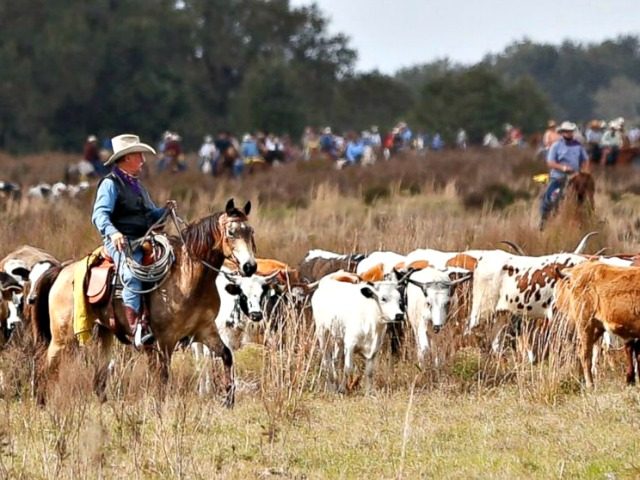Hilal Elver, the United Nations special rapporteur on the right to food, writes about the Green New Deal resolution Democratic Socialist Alexandria Ocasio-Cortez proposed that has been endorsed by many other Democrats, saying it “falls far short” of what is needed to address the dangers of climate change.
“In trying to promote energy and financially-focused solutions to climate change, the Green New Deal fails to call for the one unifying action that must precede any policy implementation: the United States must formally recognize and be prepared to implement economic, social, and cultural rights under international human rights law,” Elver writes.
Elver, who is also deeply involved in leftist U.S. academia — a Global Distinguished Fellow at the Resnick Program for Food Law and Policy at UCLA School of Law, a visiting professor at the University of California Santa Barbara, and the co-director of the Project on Climate Change, Human Security, and Democracy at the Orfalea Center at UCSB — also says the Green New Deal “deserves praise.”
“[The Green New Deal] would represent the first major effort on the part of the United States to address the threat of climate change as dynamic, multi-dimensional, and ubiquitous,” Elver writes.
“The Green New Deal recognizes the scope of climate change’s impacts on health and wellbeing, calling for alternative agriculture practices and sustainable food systems,” Elver writes.
Elver also calls out the opposition to the plan, claiming money is the real reason it is being panned, despite many experts who have said the proposal is not only dangerous for what it would do to the U.S. economy and infrastructure but immoral for how it would impact the poor both here and abroad.
“Thus far, those critiquing the text have warned that its policies and programs are too ambitious, which mostly means that they are too expensive if carried out as projected,” Elver writes.
“As it happens, with feasible shifts in the tax structure and desirable readjustments in budgetary priorities, respected economists have demonstrated that the Green New Deal goals so integral to human dignity are well within reach if the relevant political will is present,” Elver writes.
Some of those “policies and programs” include an end to air travel, fossil fuels and even some agricultural practices such as cattle ranching.
Elver’s globalist view and environmental activism are even more radical than the Green New Deal, citing the United States failed to ratify the International Covenant on Economic, Social and Cultural Rights and accusing the U.S. of human rights violations:
The Green New Deal seems to skip over this significant shortcoming, calling for the federal government to guarantee health care, housing, economic security, and access to clean water and air, healthy food and nature, but never calling upon the government to acknowledge that these are fundamental rights, and not discretionary matters of policy. Rather, the text uses terms such as “basic needs” or “goals and projects.” It dismisses the notion that the lack of universal access to clean water and healthy food are not just “related crises” but human rights violations.
Whether or not the U.S. formally acknowledges it, states possess a primary legal duty to respect, protect, and fulfill the right to food. So yes, the Green New Deal is correct to suggest that the United States has a duty to secure “healthy food” for all. But even more than that, the United States has an obligation to ensure that all populations have unrestricted physical and economic access to a sufficient quantity of nutritionally diverse, safe, culturally appropriate food.
The United States also has an obligation to not interfere with the realization of this right, or any other human rights. This means that the Government must stop promoting policies and practices that perpetuate income inequality, a racial wealth divide, reliance on fossil fuels, and industrialized agriculture.
Elver concludes by saying the Green New Deal “points us in the right direction” and encourages the U.S. to ratify the 1977 “rights” covenant to “send a signal to the world that the United States has changed course, and is fully on the side of humane governance both at home and abroad.”
Follow Penny Starr on Twitter

COMMENTS
Please let us know if you're having issues with commenting.